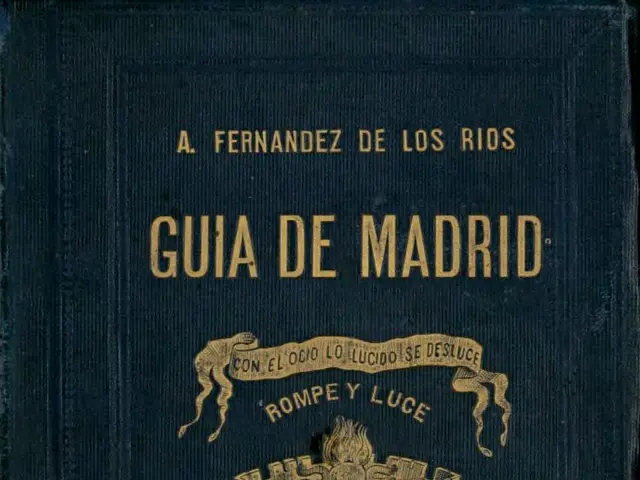Strategies and advice for wagering on ice hockey games
The thrilling world of ice hockey betting awaits you! This comprehensive guide teaches you the ins and outs of betting on ice hockey games, from basic strategies to advanced techniques. Ice hockey, with its blistering pace and unpredictable nature, offers an exciting and distinct betting experience compared to other sports.
The special facets of ice hockey for betting
Ice hockey is one of the fastest team sports in the world, featuring unique features that make it captivating for betting. Here are some essential aspects to be aware of when diving into the world of ice hockey betting:
- Rapid game speed and unexpected twists: Ice hockey's breakneck speed means game situations can change dramatically within seconds. Teams can go from leading to conceding multiple goals in just a few minutes. This volatility provides numerous opportunities for various betting types but also requires a keen sense of the game's momentum.
- Importance of special teams and power plays: In ice hockey, teams' effectiveness in power play (positive numerical advantage) and penalty kill (negative numerical disadvantage) situations play a crucial role. Teams with strong power plays can score even against seemingly superior opponents if they secure enough power play opportunities.
- Goaltender's central influence: No player in ice hockey has as much impact on the game's outcome as the goaltender. Even inferior teams can win when boosted by an exceptional goaltender. Before placing ice hockey bets, it is vital to examine which goalies will be in action. A backup goalie or an injured starting goalie can drastically alter the odds, especially when betting on the total number of goals (over/under).
In contrast to other sports, where individual positions may have less influence, the goaltender position is pivotal in your analysis for ice hockey betting. seasoned bettors closely scrutinize goalie statistics and consider how they have fared against certain opponents in the past.
Key ice hockey leagues for your bets
For successful ice hockey betting, it is crucial to understand the different leagues and their nuances. Each league has distinct rules, playing styles, and factors that influence the betting landscape.
- The NHL: The National Hockey League is the most prestigious ice hockey league in the world and the broadest in terms of betting opportunities. With 32 teams and an 82-game season per team (including playoffs), there are practically daily ice hockey betting opportunities. The NHL is marked by a high degree of parity - even the best team can lose to the weakest. The peculiarity of the NHL is the long travel distances and different time zones that teams must cope with. Teams on long road trips can show signs of fatigue towards the end of their journey, which can affect their performance.
- KHL and European top leagues: The Kontinental Hockey League (KHL) is the second-largest professional league, primarily based in Russia but also consisting of teams from other countries. It provides good ice hockey betting opportunities, although it is often less balanced than the NHL, with top teams frequently dominating the competition, offering interesting options for favorite bets. Other European leagues such as the Swedish SHL, the Finnish Liiga, and the German DEL each have their peculiarities. For example, the DEL is well-known for its offensive style of play, which can lead to particularly high-scoring games - an essential factor for over/under bets.
- International tournaments and their characteristics: World Championships, Olympics, and other international competitions offer unique betting chances. These events follow different rules than league games and take place on bigger ice surfaces, affecting the gameplay. Moreover, national teams can vary greatly depending on the players available. At international tournaments, team chemistry becomes increasingly important, as players have limited time to get used to each other. Good teams with established units or many players from the same league can have advantages in international competitions, which is a crucial factor when betting on them.
The most popular ice hockey bet types
Ice hockey offers a wide range of betting options that differ significantly from other sports. Here are the most important bet types that you should know:
- Moneyline: The basic win bet is the simplest form of ice hockey betting. You simply bet on which team will win the game - either in regular time or including overtime and shootouts, depending on the sportsbook. This bet type is ideal for beginners as it's easy to understand.
- Puckline (Handicap): The ice hockey equivalent of the handicap bet in other sports is the puckline. In ice hockey, the handicap is usually +/-1.5 goals. With a puckline of -1.5, the favorite team must win by at least two goals for your bet to be successful. If you bet on +1.5, your bet wins if the team either wins or loses by no more than one goal. This bet type often offers better odds than the straight win bet and is particularly interesting when a clear power imbalance exists between the teams or when a team is known for winning or losing close games.
- Over/Under (Goals): Betting on the total number of goals is one of the most popular options in ice hockey betting. In this case, a total goal number is set, typically 5.5 or 6.5 in the NHL, and you bet on whether the actual number of goals in the game will be over or under that number. This bet type requires a thorough analysis of the offensive and defensive strengths of the teams, as well as the form of the goalies. The playing style of the teams and historical head-to-head records can also provide valuable insights. Additionally, note that teams tend to play defensively when they're tired, which can lead to fewer goals, especially towards the end of extended series.
- Period bets: One fascinating aspect of ice hockey betting is period bets. Since an ice hockey game is divided into three equal-length periods, you can bet on the outcome of individual periods. This opens up interesting strategic possibilities, as teams often show distinctive strengths in various game segments. Particular attention should be paid to the fact that some teams traditionally start the first period strongly, while others pick up their pace in the final third. Exploiting these patterns can be beneficial for successful period bets, especially if bookmakers have not fully integrated these team-specific tendencies into their odds.
- Special bets: Many bookmakers offer special ice hockey bets focused on specific player events:
- Goalscorer bets (first, last, or anytime)
- Total penalty minutes
- Total shots on goal
- Individual player performance (points, assists, etc.)
- Special events like overtime or shootouts
These bets often require specific team and player knowledge but can be exceptionally rewarding if you are well-informed about ice hockey and can gain information advantages. However, the availability of special bets varies by country.
Understanding the ice hockey season: crucial phases for your bets
To place successful ice hockey bets, it is crucial to understand the season's flow and know when certain bet types are most rewarding.
- Season Start: Watch out for surprises: The first weeks of the ice hockey season are notoriously difficult to predict. Teams have new players, adjusted tactics, and are still feeling each other out. Unexpected outcomes can occur, making odds inaccurate. As a bettor, it is best to be more cautious or to focus on teams that have held onto their core players and quickly found their rhythm. Meanwhile, teams that had a weak previous season but improved their roster may offer good odds, as bookmakers may not have updated their evaluations yet.
- Mid-Season: The most reliable betting period: Once a third of the season has passed, teams have settled into their roles, and clear performance patterns have emerged. This is usually the most reliable phase for ice hockey bets, as there is enough recent data, but teams are still giving their all. During the mid-season, pay close attention to trends: teams with winning streaks often maintain their momentum, while teams with losing streaks may experience internal issues. Important player injuries also become apparent at this stage.
- The Home Stretch: Playoff fight and motivation differences: In the final weeks of the regular season, team motivation can vary significantly. Teams fighting for the last playoff spots often play with maximum intensity, while teams that have already qualified or have been eliminated may rest their starters. Discerning the different levels of motivation between teams can help you find valuable odds by accurately assessing the motivation levels of underdogs against established playoff teams that may already be looking ahead to the postseason.
- The Playoffs: A unique betting discipline Ice hockey playoffs differ significantly from the regular season. Competition intensifies, defense becomes even more important, and series dynamics play a big role. Consequently, your betting strategy must be adapted for ice hockey playoffs. Playoff games tend to be closer and higher-scoring, necessitating adjustments to the over/under lines set by bookmakers. Another essential factor in the playoffs is the home-ice advantage, which weighs more heavily in this phase than in the regular season and should be considered in your ice hockey bets.
Data-driven decision making for ice hockey bets
Nowadays, a wealth of statistical data is available for you to use to make your ice hockey bets more informed. Correctly analyzing this data can give you a substantial edge.
Standard vs. advanced statistics
Traditional ice hockey statistics like goals, assists, and plus/minus are valuable, but for precise ice hockey bets, you should also consider advanced statistics:
- Corsi and Fenwick: These statistics measure shooting attempts for and against a team, providing insights into game flow and puck possession time. A team with a dominant Corsi rating is likely to control the game, leading to more goals in the long run, even if short-term shooting luck is lacking.
- Expected Goals (xG): This metric evaluates the quality of scoring chances based on factors like shot position, angle, and type. It can be particularly helpful when identifying whether a team is unusually efficient (and potentially unsustainable) or unlucky (with potential for improvement).
Sources for data-driven analysis
Access to high-quality data is essential for successful ice hockey bets. Here are some of the best sources:
- Official league websites (e.g., NHL.com, DEL.de): These websites provide basic statistics.
- Specialized statistical portals (e.g., NaturalStatTrick, HockeyReference): These platforms offer advanced metrics.
- Social media and ice hockey blogs: These sources offer insider information and quick updates.
- Streaming services: Watching games yourself can help you gain insights.
The combination of quantitative data and qualitative game observation creates the most comprehensive basis for betting decisions. Specifically, valuable are pieces of information that are not yet fully reflected in the betting odds, such as short-term lineup changes or tactical adjustments.
Systematic documentation of your bets
A frequently overlooked aspect of successful ice hockey betting is systematic documentation of your own betting activities. By documenting not only the stake and result for each bet but also your reasoning behind these decisions and relevant statistics, you can analyze your performance and continuously improve.
In particular, it is essential to analyze which bet types and leagues you are most successful with. Perhaps you find that you are particularly proficient with period bets in the DEL or that your over/under estimates in the NHL are unusually accurate. These insights should influence your future betting strategy.
Ice hockey-specific betting strategies
With the right strategic approach, you can significantly enhance your chances of success in ice hockey bets. Here are some strategies tailored to the unique aspects of ice hockey:
Value Betting in Ice Hockey
The key to successful sports betting lies in identifying "value" - situations where the betting odds underestimate the actual winning probability of an event. In ice hockey, there are several common scenarios where value can occur:
- Overrated favorites: In popular leagues like the NHL, traditional powerhouses (Original Six teams) are often overvalued. Bookmakers take the large fan base of these teams into account, which tends to bet more on their team, leading to skewed odds. This can provide value by betting on the less popular yet equally skilled teams.
- Overlooked goaltender changes: When a starting goaltender is replaced unexpectedly, bookmakers may not adjust the odds quickly enough. Keeping track of goalie developments can give you an informational edge.
- Home Ice Advantage: Some ice hockey teams benefit disproportionately from home ice advantage due to specific factors such as enthusiastic fans, unique ice conditions, or long travel distances for opponents. By carefully analyzing home and away statistics, you can identify these patterns.
Period Betting Strategy
Dividing a hockey game into three periods offers interesting strategic opportunities. Teams often display distinct tendencies for various game segments:
- Some teams traditionally start the first period strongly, while others show their prowess in the second or third period. Analyzing historical period results can help you identify these tendencies.
- Period betting is also interesting in specific game situations. Teams that are behind after two periods often increase their risk in the final period, leading to more goals - for both teams, as counter-chances are created. This can be relevant for over bets in the third period.
Live Betting in Hockey
Due to its dynamic nature, ice hockey is great for live betting. Rapid game changes can lead to attractive odds shifts that you can take advantage of:
- Momentum Bets: If a team is creating a lot of opportunities and looks dominant, betting on an imminent goal, even if they are currently trailing, can be engaging.
- Late Bets on Goalie Performance: After observing a few minutes of a game, you can better assess the form of the goalies. If a goalie appears uncertain at the beginning of the game, an over bet could offer value.
- Powerplay Bets: When a strong powerplay team gains a powerplay opportunity, live bets on a goal within the next few minutes can provide interesting opportunities, especially if the team is already applying pressure.
Common mistakes to avoid in ice hockey betting
Even experienced bettors can fall into common pitfalls. Here are the most common mistakes in ice hockey betting and how to avoid them:
- Overrating winning streaks: Long winning streaks appear impressive but can be misleading. Teams on such streaks are often overvalued, while teams on losing streaks are undervalued. The truth is that in modern ice hockey, with its high degree of parity, these streaks are often more a result of luck than actual performance differences. Instead of blindly betting on the favorite with a long winning streak, analyze the underlying statistics carefully: Was the team truly dominant, or did they just have efficient scoring or outstanding goaltending?
- Neglecting the role of the goaltender: The impact of the goaltender in ice hockey is often overlooked or not given enough consideration. It is essential to pay attention to the starting goaltenders, their recent form, and performance records against certain opponents.
- Ignoring home ice advantage: The home ice advantage in ice hockey varies between different teams and arenas. Some teams benefit disproportionately from home games due to the enthusiasm of the crowd, unique ice conditions, or long travel distances for opponents. Careful analysis of home and away statistics can help you identify these patterns.
With the right knowledge, strategies, and discipline, you can successfully navigate the exciting world of ice hockey betting. Good luck, and may your bets be on point!
- The unique blend of speed and unpredictability in ice hockey makes it a captivating sport for bettors, offering numerous opportunities but requiring a keen sense of the game's momentum.
- In ice hockey, power play and penalty kill situations, as well as the goaltender's ability to influence the game, are vital factors to consider before placing a bet.
- Studying goalie statistics and their past performances against certain opponents can help provide valuable insights when betting on the total number of goals (over/under).
- In contrast to other sports where individual positions may have less influence, the goaltender position plays a crucial role in ice hockey betting. Skilled bettors closely scrutinize goalie statistics when making betting decisions.
- The NHL represents the broadest market for ice hockey betting, with 32 teams and an 82-game season per team. The league is marked by a high degree of parity, with even the best team able to lose to the weakest.
- Other European leagues like the Swedish SHL, Finnish Liiga, German DEL, and the Kontinental Hockey League (KHL) each have their peculiarities. For example, the DEL is well-known for its offensive style of play, leading to high-scoring games that are useful for over/under bets.
- Understanding the distinct rules, playing styles, and factors influencing the betting landscape of each league is crucial for successful ice hockey betting.
- In the sports-betting world, moneyline bets are the simplest form of ice hockey betting, where you simply bet on the team that will win the game.
- The puckline (handicap) is the ice hockey version of the handicap bet in other sports, with teams often given +/-1.5 goals. This bet type offers better odds than the straight win bet, particularly when significant differences in power exist between the teams or when a team is known for winning close games.
- Over/Under (goals) bets involve setting a total number of goals based on the teams' offensive and defensive abilities, as well as the form of the goalies. Analyzing team chemistry, playing style, and historical head-to-head records can provide valuable insights for these bets.
- Period bets offer fascinating strategic possibilities, as individual periods provide different opportunities for exploiting specific team tendencies and short-term patterns.








